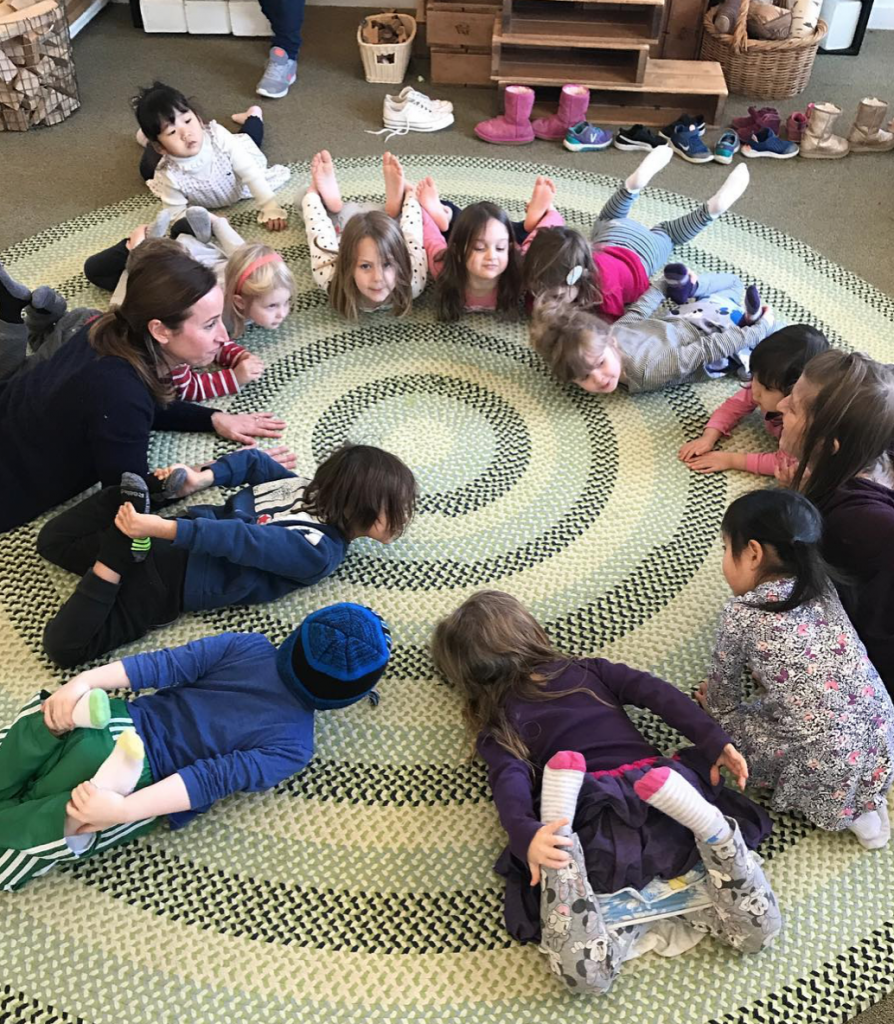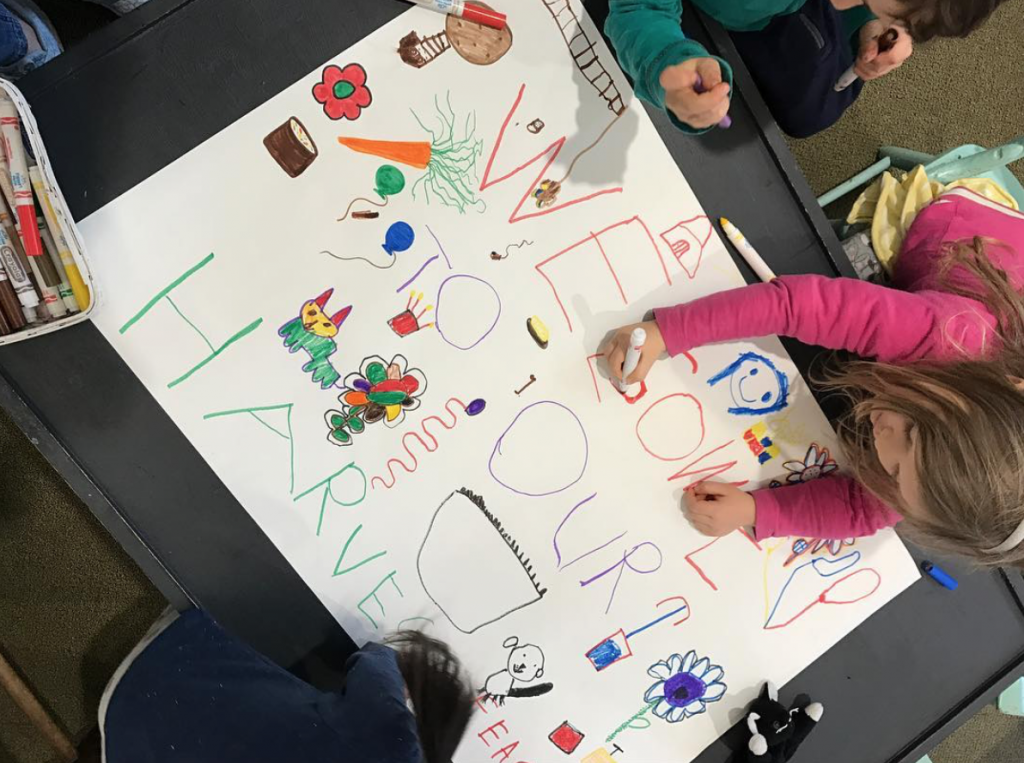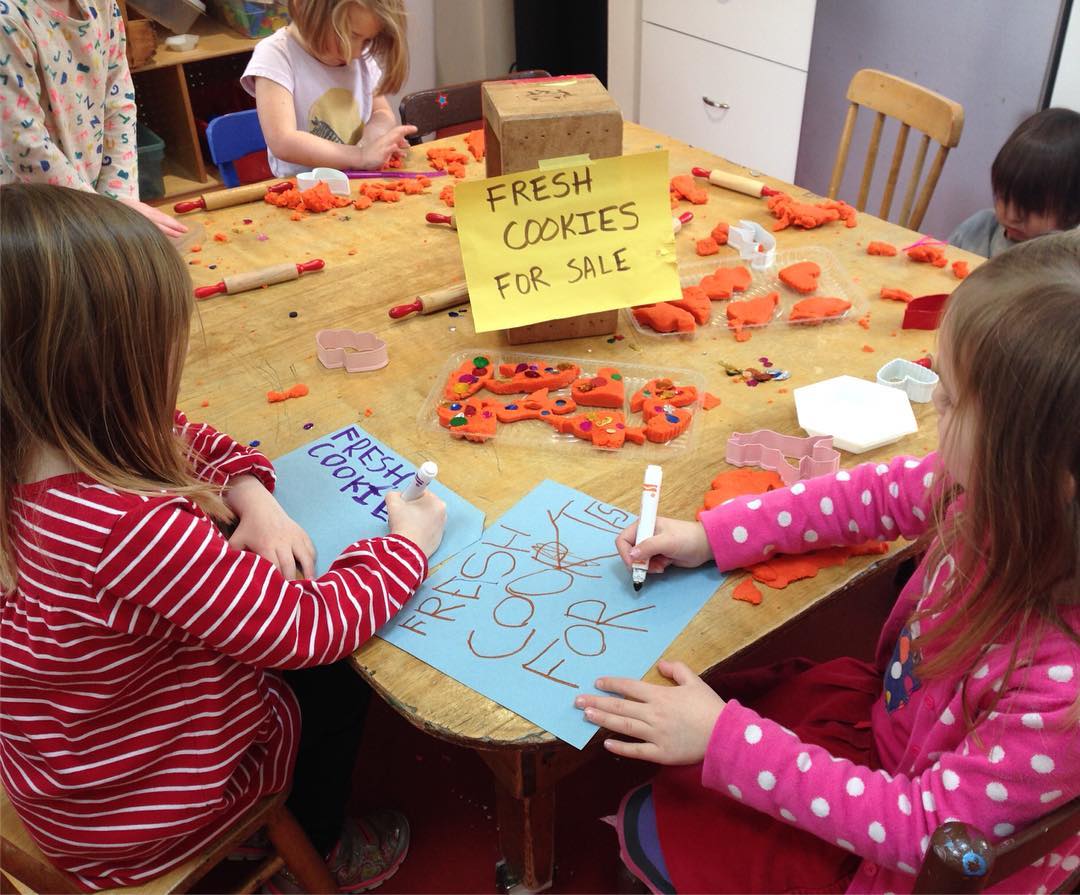Mission Statement
Parents’ Nursery School (PNS) is a parent cooperative pre-school that helps children build the fundamental social and emotional skills necessary to become lifelong learners. At PNS learning is developmentally appropriate and meaningful to children’s lives. We are committed to supporting families by providing a place where children can safely expand their boundaries from home to the outside world.
Children at Parents’ Nursery School:
- engage in self-directed free-play, facilitated by teachers and parent helpers;
- have ready access to and can explore the natural outdoor environment; and
- extend their physical, emotional, and developmental boundaries while supported by a community that maintains a strong connection between home and school.
At PNS we trust a child’s innate curiosity to be the springboard for learning. Within every activity there are opportunities for problem solving, critical thinking, joy, and humor. Through play and engagement with others, children learn to identify their feelings, advocate for themselves, view problems from multiple perspectives, and resolve conflict. Parents’ Nursery School values the development of a diverse community of adults and children. Together, we emphasize learning rather than teaching, and process rather than product.

Curriculum and Philosophy
The program at Parents’ Nursery School (PNS) takes a developmental approach to the education of young children, helping them master the basic learning and social skills that form the foundation for all future learning.
Children between the ages of three and five need a safe, stimulating environment where they can make their own choices, their own discoveries — and, sometimes, their own mistakes. Studies have shown that children’s language and intellectual skills develop best when they are playing games of their own invention, rather than participating in activities dictated by adults. Thus the curriculum at PNS is entirely child-centered — the day is spent in things the kids find interesting, rather than in things we might think they “should” be learning.
When you visit the school, look at it from a child’s point of view. Children walk in and see a world of limitless possibility. They look around and begin to wonder, to imagine, to question. The play dough is set out near the sand table — what happens if we mix sand into the play dough? What if we drape cloths over the indoor climbing structure, and turn it into a tent? What if we spend the whole day — or the whole week — outside digging a system of trenches and then filling them with water? And what if there are five of us and only three shovels? Can we take turns in a way that’s fair to everybody? Are there other things we could use to dig with?
Sometimes prospective parents ask why the day here is not more structured. The fact is that a young child’s life is already pretty structured, with mealtimes, bath time, bedtime, being told it’s time to go to the store or time to leave the playground. We believe that the function of a preschool is to provide them with a place where, for a few hours a day, they can set the agenda. Our job, as teachers, is to keep them safe; to encourage and stimulate but not to control; to help them learn by doing rather than simply telling them what we think they should know.
Children change and develop over the course of their two years at PNS. For younger children, the first challenges are generally social — learning to get along in a group, to speak up and assert one’s own needs, to respect others’ words and choices, to gain in independence while knowing that adult support is there if needed. Older children get to experience leadership — they know the ropes and are often very solicitous of younger kids — and they tend to explore projects and materials in greater depth.
For all PNS children, there is a strong sense of ownership and mastery. This is their place. They choose how to spend their time and what to do with the materials offered. They wash and put away their own cups after snack time, and they tidy up the school at the end of the day. They are proud when their parent comes in to parent help, but also comfortable asking any adult in the school to tie their shoes, read a story, or help them get something down from a high shelf.
Overall, the children who go through PNS tend to develop independence, self-reliance, curiosity, and a joyful enthusiasm about school and learning. They learn to respect themselves and others, to make choices, and to solve disputes through negotiation. These, more than any others, are the skills that prepare them for kindergarten and for all the learning that follows.
For the first 50 years, PNS philosophy stressed individual growth and development. While this is a strong part of our school’s philosophy, we also want to place importance on interdependence and community building. These experiences can be created by having the curriculum continue to emerge from the children’s behavior and ideas. Teachers will extend and provoke the children’s learning and thinking through the use of literature, materials and activities. This environment helps them develop the skills and construct the knowledge to foster cooperation and caring social encounters and give them tools to counteract society’s negative influences. Teachers hope to create a foundation upon which children can acknowledge and validate similarities and differences; learning to respect each child’s contribution to the community.

